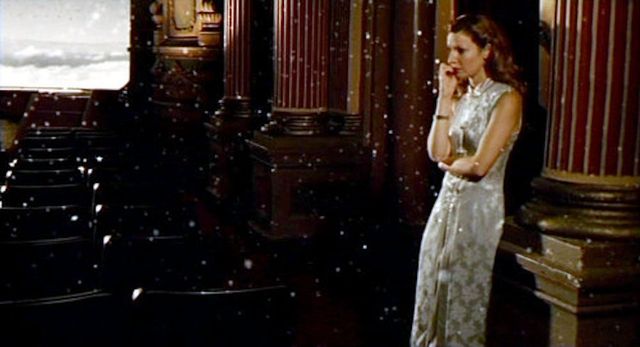Dubious use of Cab Calloway is on the major crimes list in my house, but Sebastián Silva’s surprise mobilization of Minnie The Moocher as a source of existential unease early in Magic Magic at least earns points for original thinking. The rest of it is a bit less novel; the press notes are careful not to mention the word Polanski but the spirit of Repulsion is clearly in the air, watery graves and malformed animals and all. On the other hand it does make probably the best use yet of Juno Temple’s natural gift for seeming like she’s just walked through the front door of the wrong house. I reviewed it for Critic’s Notebook, but realised in the process that I’m still only drawn to horror films if they tie adult sexuality onto social science and jump up and down on the join; decades on from Hellraiser, Clive Barker remains my guy.
Nicolas Winding Refn was my guy when he made Bronson, but these days it seems we’re on the rocks. Only God Forgives actually left me roughly one-thousandth as cross as Drive had done; sadly that’s still quite a lot. Ninety minutes of fluorescent livid scarlet photography leaves a strong impression (Larry Smith photographed Bronson too), and Forgives spends most of its time corralled in the tight corridors and simmering fluorescent labyrinths of your damaged brain. The music simmers too, a sequence of doomy synths, dissonant tonal frameworks and even the occasional Badalamenti-style sostenuto, just to pull a hint of Lynch into it.
The rest of it is built on sand, as the director’s penetration-castration malarkey gets the better of him. Forgives is a full-on stops-out Oedipal overload, in which resident foreigner Ryan Gosling (at least a more believable dim-bulb here than he was as a Walter Hill loner last time round) gets trounced by Vithaya Pansringarm as Chang, a devilishly vicious Bangkok cop with the sword skills of Toshiro Mifune and the negotiating tactics of Ming The Merciless. More to the point Gosling’s vacuous expatriate is transfixed by his own horrific mother, rather engagingly played by Kristin Scott Thomas as a cuttlefish in human form with the tellingly vapid name of Crystal, who turns out to be the ultimate deconstruction of all those slightly incestuous noir femmes. She ends up minced by Chang The Merciless, whereupon Gosling cuts an additional hole in her and shoves his hand in the general direction of her uterus, presumably reaching a long-desired destination. Shortly afterwards, Chang slices Gosling’s hands off altogether, a much foreshadowed extremity calamity.
Stylistic considerations of ultra-violence aside (and the film’s noir credentials strike me as less than watertight) the perils of deconstructing things that were pastiches in the first place never go away. Exploitation cinema has its tropes, and the director does them and their heritage precious little service by unhooking them from societal concerns and inflating them with his own passive-aggressive toxins. Spotting an incongruity he can really work with, Refn gets Chang to do a mean karaoke, but he doesn’t interrogate that character trait with one-tenth the insight and authentic chill of Modern Love Is Automatic, in which everybody’s limbs stayed properly attached.
 The Missing Person
Freeform technology
Links to some recent technology stories written by me. An interview with the head of a new US research center about freeform optics, which is a new
The Missing Person
Freeform technology
Links to some recent technology stories written by me. An interview with the head of a new US research center about freeform optics, which is a new